This article was co-authored by wikiHow Staff. Our trained team of editors and researchers validate articles for accuracy and comprehensiveness. wikiHow's Content Management Team carefully monitors the work from our editorial staff to ensure that each article is backed by trusted research and meets our high quality standards.
This article has been viewed 96,518 times.
Learn more...
Many people rely on nursing homes to care for family members at the end of their lives. A great nursing home makes all the difference in a loved one’s quality of life, so it is a wonderful idea to send a thank you letter to the staff to show your appreciation.
Steps
Beginning Your Letter
-
1Be prompt. If a doctor, nurse, or other nursing home staff member has gone out of their way to provide first-rate care to someone you love, don’t wait to thank them. [1] Remember, you can thank them verbally, too, but following up with a thank you note is always recommended.
-
2Date your letter. Note the date at the top of your letter. Because this is an informal letter (as opposed to a business letter) you may write it out in longhand, use abbreviations for the months, or write the date numerically in month/day/year format. For example, you may write “October 24, 2017,” “Oct. 24, 2017,” or “10/24/17.”[2]Advertisement
-
3Write a salutation. Start your letter with a salutation such as “Dear Nurse Jones.” Address your letter to the person to whom you wish to express appreciation.
-
4Use high-quality stationery. Personal thank you notes like this one should always be handwritten. Using stationery of good quality will reflect best on you, so be sure to choose your materials carefully. Avoid using printer paper or index cards. Higher-quality stationery is made of thicker cardstock, and is more expensive. Stationery is made of different fibers, so different varieties will have different finishes.
- Different finish options include Embossed (Raised Paper Design), Felt (Patterned Wool), Laid (Lined), Linen (Woven Cloth), and Vellum (Parchment).
Including Meaningful Content
-
1
-
2Offer specific praise. It’s good to express your thanks for ongoing care, but it also helps to mention particular gestures of kindness.This will make the caregiver feel visible. You will let that person know that their many acts of generosity have made a difference.
- For example, you might write: “Dear Nurse Jones, Thank you for your kind attention to my father at the end of his life. You not only brought him his medication every day, you also reassured him about his health and listened to his stories, which brought him great delight.”
-
3Offer your well wishes. It’s always a good idea to conclude by wishing your recipient the best. You might wish joy to their spouse or family, or wish them good luck with a current project, upcoming trip, or future endeavor. [5]
- You may write something like, “I wish you and your family nothing but joy. I truly enjoyed hearing about your children, and telling you about mine. I am glad to have gotten to know you. Knowing our father was in such good hands brought a sense of peace to our entire family.”
Wrapping Up
-
1Close the letter warmly. “Sincerely” is always an option for closing a thank you letter. “With gratitude,” “Yours gratefully,” and “Kind regards” are other choices that add a more personal touch.
-
2Mail it as soon as possible. The sooner you send your letter, the sooner your appreciation will be known. If a loved one has passed away in the nursing home, a prompt thank you note can bring a great deal of solace to a caregiver.
-
3Enclose a thank you gift or donation if appropriate. Some items you might consider donating are fresh fruit or flowers. You may also consider donating your time. Keeping patients company, even just for a short time, is the one best ways to bring cheer to their day.
References
- ↑ http://www.thank-you-note-examples-wording-ideas.com/personal-thank-you-letter.html
- ↑ http://grammar.yourdictionary.com/style-and-usage/how-to-formally-write-the-date.html
- ↑ http://www.thank-you-note-examples-wording-ideas.com/personal-thank-you-letter.html
- ↑ https://www.inc.com/minda-zetlin/how-to-write-a-sincere-and-meaningful-thank-you-no.html
- ↑ https://www.inc.com/minda-zetlin/how-to-write-a-sincere-and-meaningful-thank-you-no.html
About This Article
To write a thank you letter to a nursing home, write the date on the top left corner. Then, add a salutation beneath the date, addressing your favorite caregiver if you can, like "Dear Nurse Patty.” In the body of your letter, mention specific things you're grateful for, like their attentiveness or how they make sure to bring your relative their medication without fail. However, keep this section brief, and try not to go over two paragraphs so your letter isn't too long. Wrap up the letter by wishing the caregiver well in their future endeavors, and close the letter with a warm salutation like “With gratitude,” or “Kind regards.” For more advice, like how to include a personal gift or donation to a nursing home caregiver, read on!
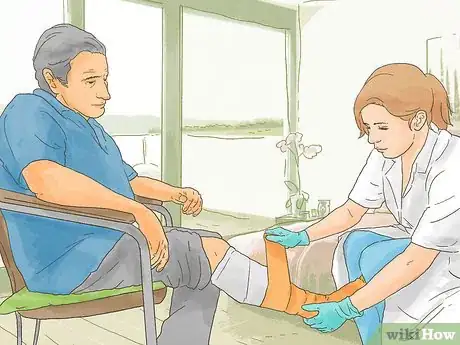

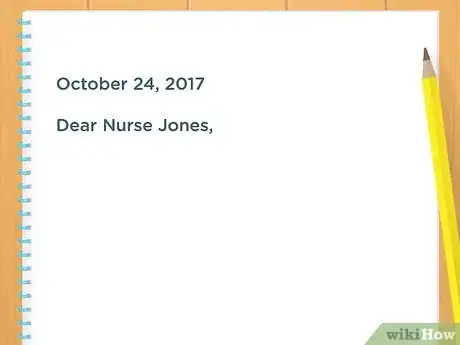


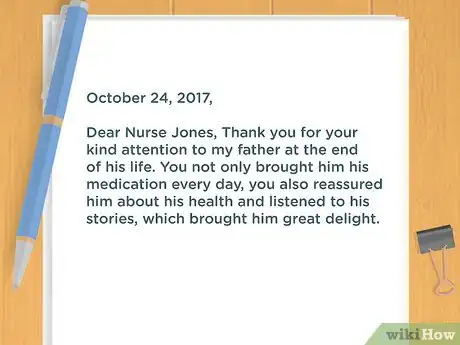
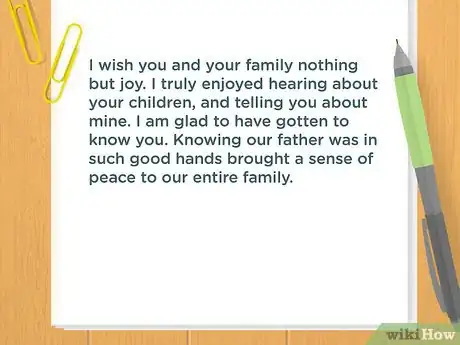
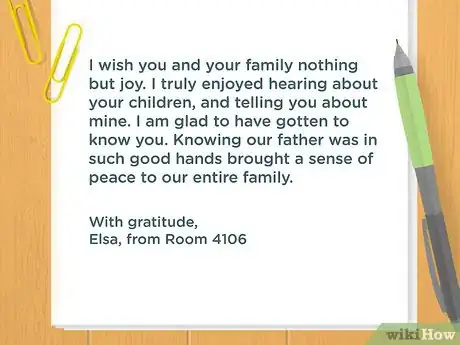
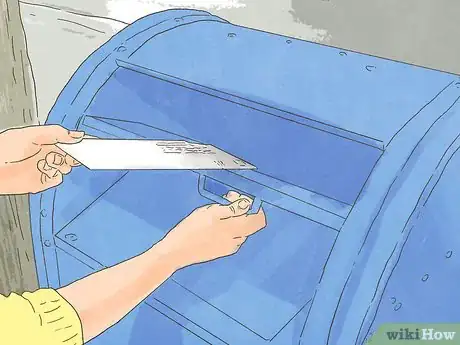


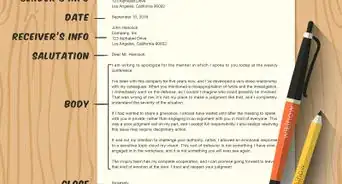
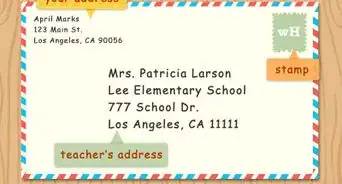
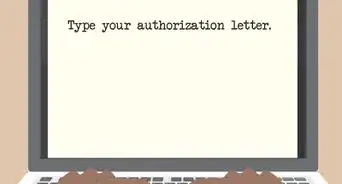



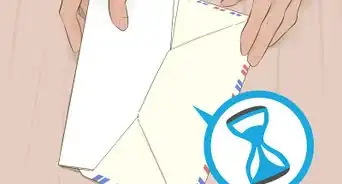


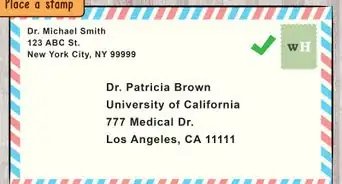
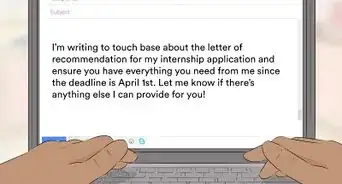
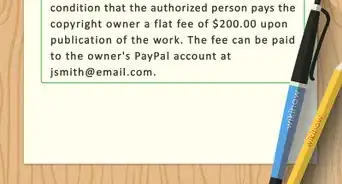










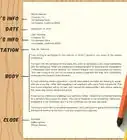
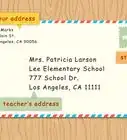




































Medical Disclaimer
The content of this article is not intended to be a substitute for professional medical advice, examination, diagnosis, or treatment. You should always contact your doctor or other qualified healthcare professional before starting, changing, or stopping any kind of health treatment.
Read More...